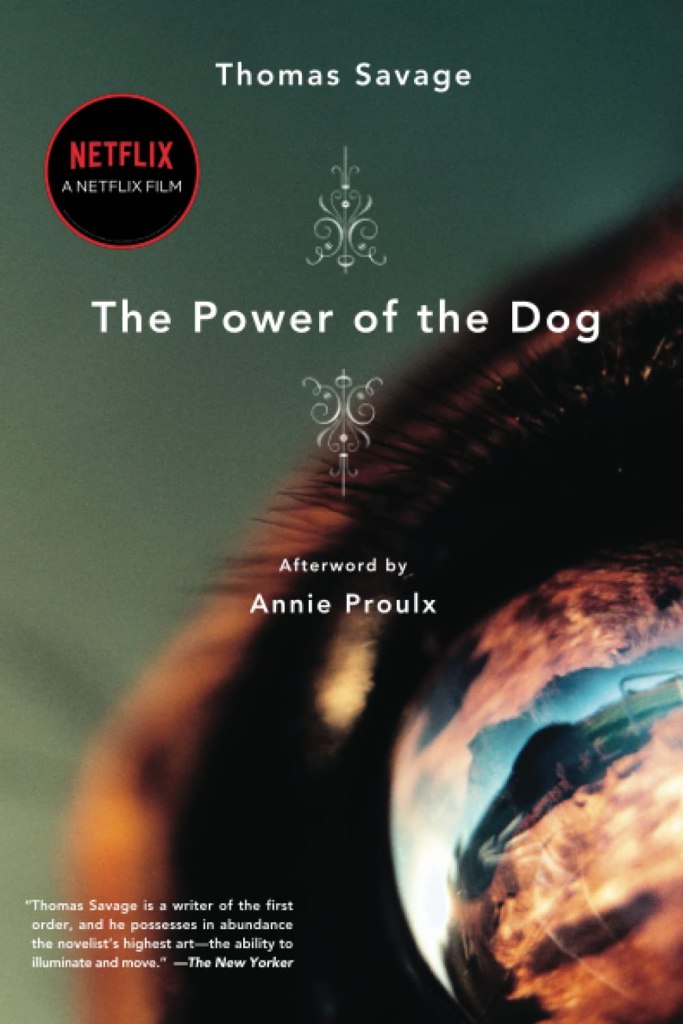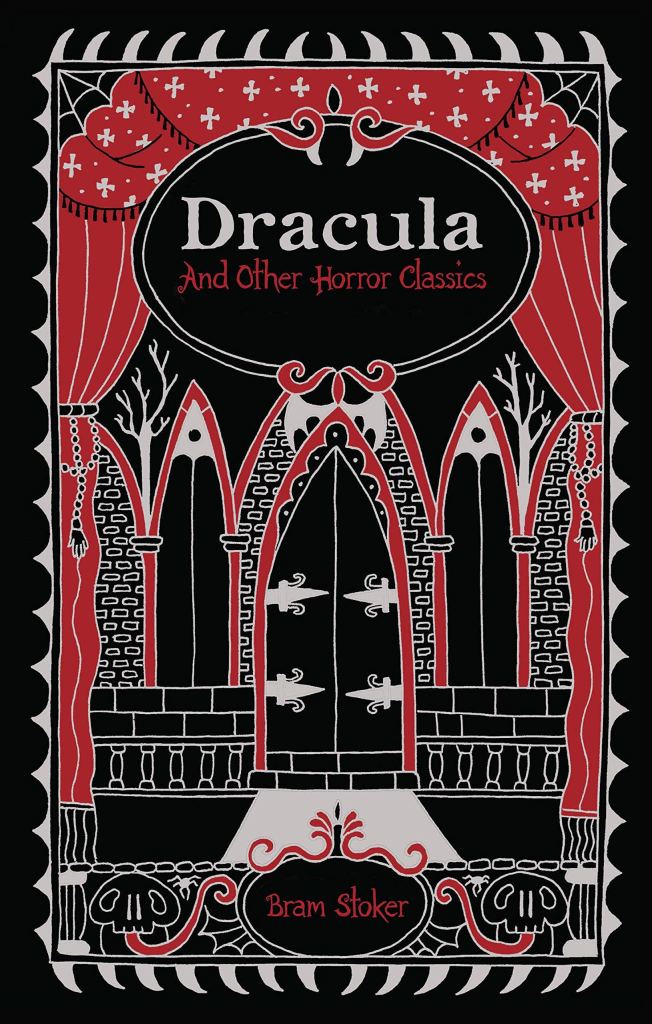Believe it or not, it has been about six months since I last talked about the novel and Netflix Oscar Nominee The Power of the Dog. While I had a few ideas for possible posts, motivation and ideas had stagnated. However, if there was one thing I hadn’t considered doing at the time, despite having read the book not long after seeing the movie, was doing a comparison between the book and movie. Because while the movie did keep pretty close to the book, there were a few differences between the two.
Similarities
Starting off with similarities between the two, as an adaptation, the movie does hold true to elements of the book its based on. There’s the story, characters, and the relationship between said characters.
As for story, it does follow the book pretty faithfully, save for the events behind the death of Rose’s husband and Peter’s father, which I will get to momentarily. It still tells the story of two brothers who are quite different and how George ends up marrying Rose after the death of her husband. And Phil’s torment her throughout is still a prevalent factor.

There’s also how Phil treats Peter throughout the movie. Starting out with picking on/tormenting Peter to the slight shift where he decides to take Peter under his wing (which to some degree was kind of a ploy to isolate Rose). Then it gets to where Phil seems to see a lot of Bronco Henry, a man Phil looked up to and was close to, in Peter.
The characters were pretty consistent from the novel to the movie. How opposing Phil and George are is still there. As is how Rose and Peter react to them.
The focus put on the mountain range, how Phil views Bronco Henry, and the eccentricities of Peter that were pretty accurate. And while the movie has some areas where it has quiet pauses, I think that body language could be used in place of some of the introspective the book had.
Overall, The Power of the Dog as a movie was a pretty faithful adaptation. It kept the characters consistent from the book to the movie, kept the interactions and relationships intact, and it followed the story pretty faithfully minus one or two scenes. However, for how faithful it was, I do feel that it had one or two key differences between the two.
Differences
The main differences would be the details behind the death of Rose’s husband, how that might effect Peter from the viewer’s perspective, and how it uses the third person perspective the novel.

When it comes to the overarching perspective from Phil’s point of view, there are a few instances in the book where it feels like there is more of a focus from Phil’s point of view. Now, the book is written in the third person, so it can lend itself to not having to worry about focusing one character. However, there are a few instances of Third Person Limited perspective, which is where it feels like it focuses mostly on one character.
It does this in two different ways. The first few chapters, where it focuses on Rose’s family and her husband. There it sets up what readers will come to expect with Rose’s family. There’s also a period where it focuses on everybody, or who the scene may call for, like when Rose is moving in with George. Then, at some point, it does feel like this limited third perspective falls on Phil, later on in the book. An example being towards the climax when Peter and Phil are in the farm working on the rope, where it has him reflecting on the last time he was close with anyone (excluding his brother).
In the movie, viewers get a general third person perspective. Some scenes will focus on George and Phil, George and Rose, Rose and Peter, and Phil and Peter, depending on what the scene calls for. If I had to give the movie a character it might have given more of an overarching focus on, it would be Phil. Because, regardless of the fact that Phil is inherently the antagonist of the story, it seems like he is a driving force and focus of what goes on as the story progresses.
Also worth mentioning is the Native American family. If I recall correctly, it was a father and son or grandfather and grandson duo. In the movie, they do have a few scenes, the one where Rose gives them the leather, which Phil was adamant about not selling to them, being the important one. This family does have a few more scenes in the book, with this aforementioned exchange happening as well. I thought I should include that, because while this Native American family does show up, they did have a little more development in the book.

The biggest difference does come in the form of Peter’s father and how that might affect how people perceive Peter in the movie. In the movie, viewers will learn that Peter’s father took his own life. This event shown and is only mentioned in a conversation he and Phil have.
This conversation still happens in the novel. However, the novel addressed this within the first few chapters of it. It sets up who his father is and how he was a doctor and what the motive behind his death was. In the novel, we learn that he does worry about Peter, who at the time wasn’t as healthy as he could be, and was a target of Phil’s jokes. Which was something that had been prevalent in the book later on as well as in the movie when Peter and Rose are living with George.
Without spoiling too much, Peter’s father was worried about Peter, and comments about Peter being a “sissy” were something that really bothered him. And like it was referenced in the later scene in the book and movie, Peter was the one to find his body.
The reason I say that this can effect how viewers might breakdown Peter’s character. I had seen a case made that Peter might have been something of a sociopath and/or having a hand in his father’s death. In the case of him being a sociopath, I’m not entirely sure if that was the case, since I feel like what he did later on in the story could have been a form of trauma response and wanting to protect his mother, who didn’t really stand much of a chance when it came to Phil’s torment. However, that may depend on who you talk to.

As far as Peter having a hand in his father’s death, I can see how that could have been assumed or considered in the movie. Because of how his father’s death is addressed and Peter’s actions later on, along with the theory that Peter might be a sociopath, I could see why some viewers might have deduced that he could have been responsible. That’s not necessarily the fault of the movie, but because viewers never got to see what happened to his father, it could leave itself up to interpretation. Had the movie included a scene addressing his father, be it a scene at the beginning with a time jump to when the movie actually starts or a flashback, I think it might have helped explain things just a little more.
In conclusion, the major differences in the film include how the third person perspective seems to be used and the scene expanding on what happened to Peter’s father. As well as a scene or two more with the Native American family.
Conclusion
Overall, as an adaptation, I would say 2021’s The Power of the Dog Netflix adaptation was a solid and faithful adaptation. It followed a lot of the core elements of the novel it was based on. And though it might not have included some of the context behind the death of Peter’s father, I don’t think that hurt the movie. Though it could lead to some differing interpretations of Peter. All in all, though, I would say it was a pretty faithful adaptation.














You must be logged in to post a comment.